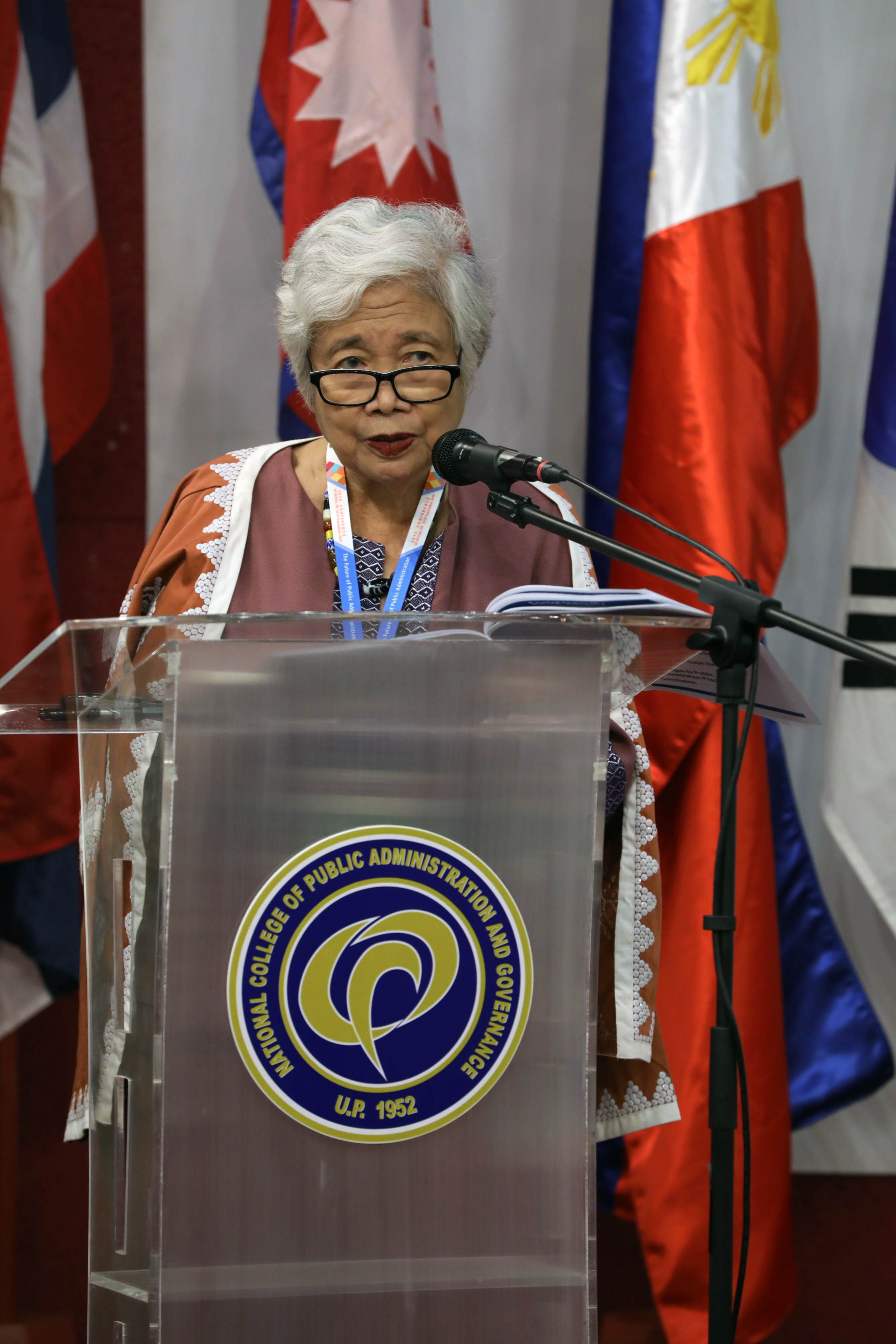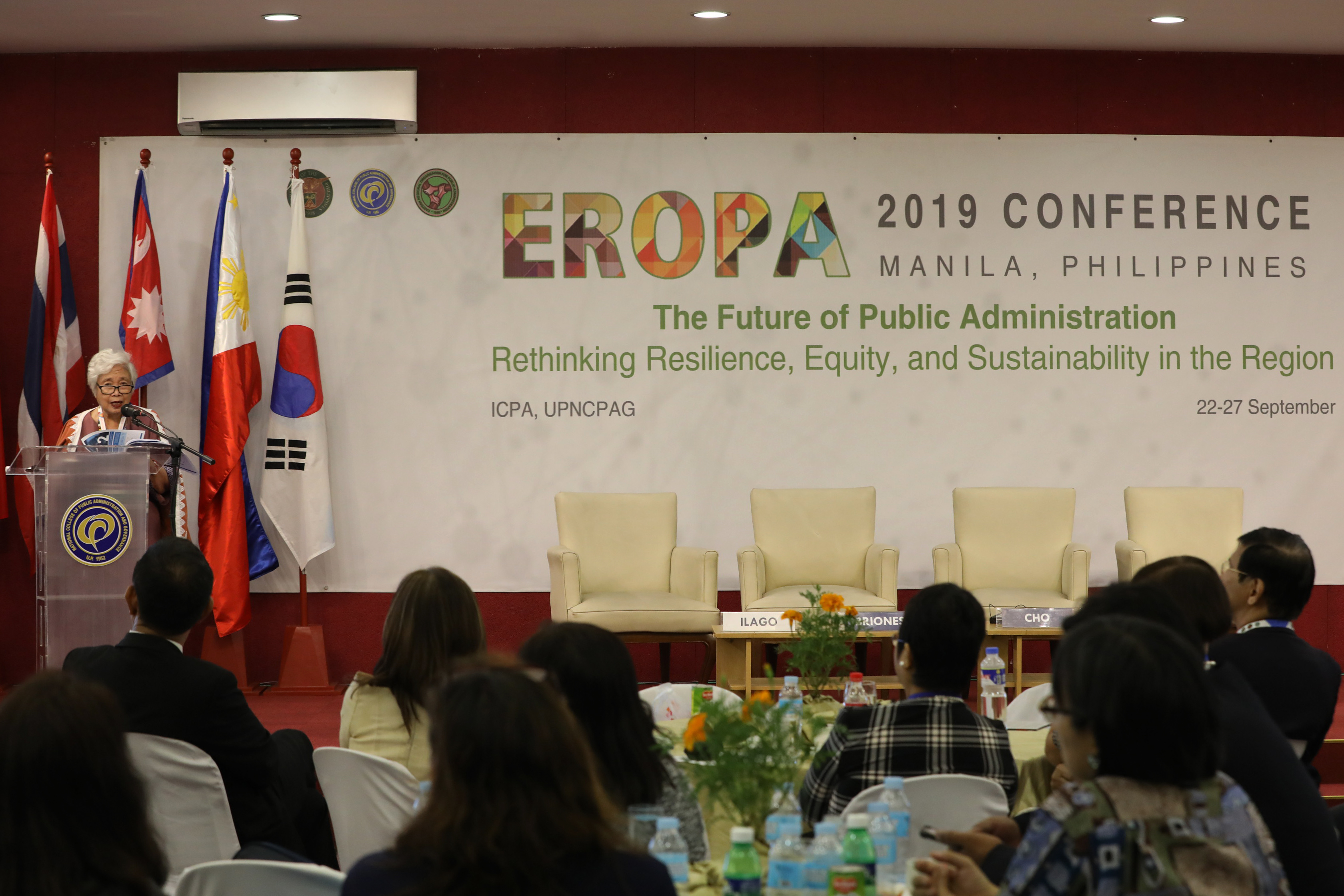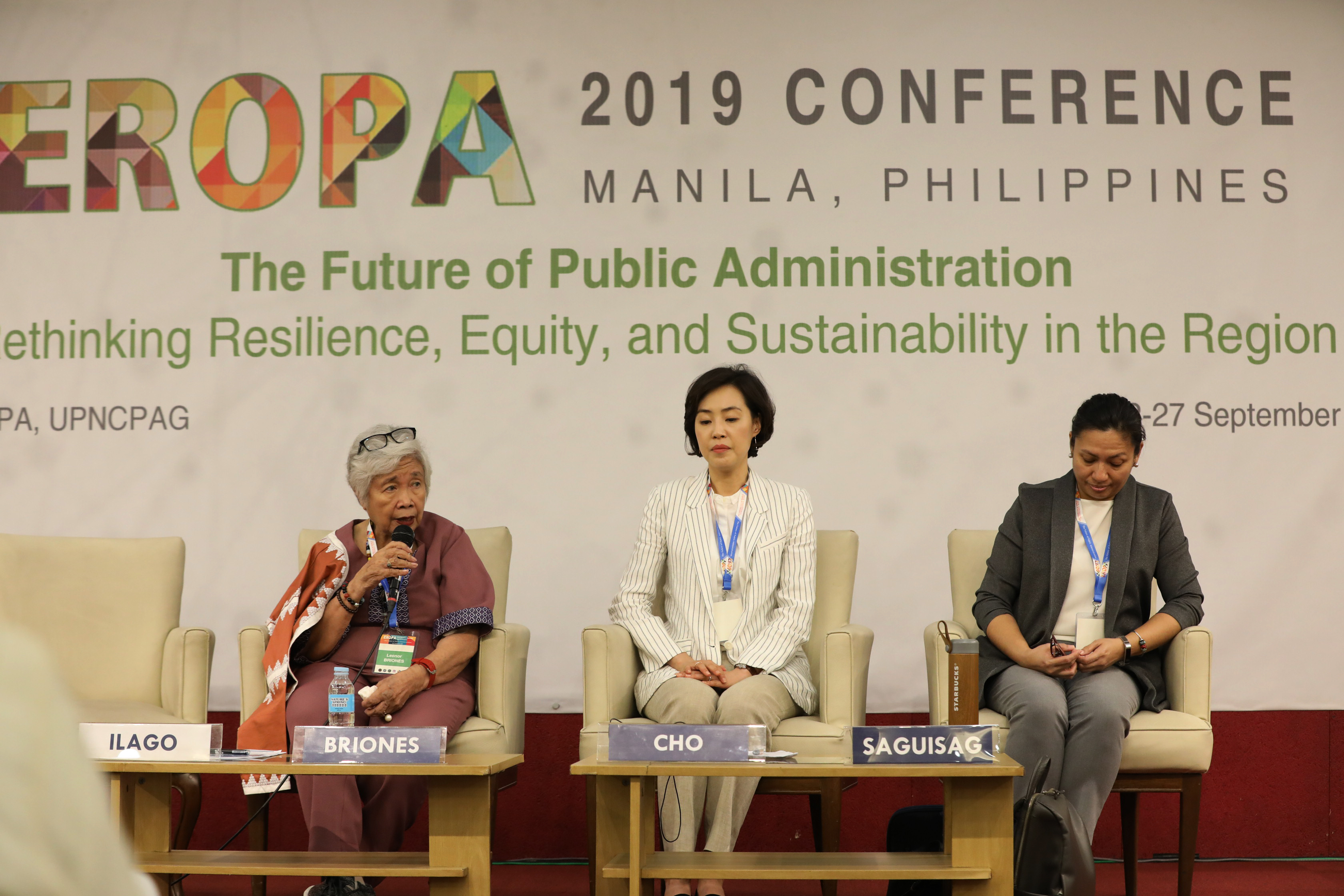QUEZON CITY, September 27, 2019 – Education Secretary Leonor Magtolis Briones on September 22 discussed Social Equity and Well-being in the education perspective during the 2019 Eastern Regional Organization for Public Administration (EROPA) General Assembly and Conference at the University of the Philippines (UP) National College of Public Administration and Governance (NCPAG) in Diliman, Quezon City.
Speaking before scholars and practitioners in the field of public administration, Briones shared how education addresses some of the issues regarding social inequity and well-being.
“Social inequity is the lack of fairness and justice, deprivation of access to opportunities and resources such as education. We have been very engrossed with making education accessible for all Filipinos,” the Education chief noted.
Secretary Briones cited poverty as one of the prevailing issues that resulted in the increase of out-of-school youths in the country. This has resulted in the lack of interest in school, particularly among male learners, who opted to work at an early age. In addition, for females, one of the deciding factors in dropping out is early marriage or pregnancy. Third on the list is the high cost of education.
“In light of these issues of poverty and dropping out, how are we addressing these? At present, the Department of Education (DepEd) is providing free or highly subsidized basic education to 27,216,398 learners in public and private schools nationwide,” she added.
Briones also discussed the importance of access to quality basic education wherein the Department has been continuously providing: “For the past three years, we have been successful in bringing back to the fold of formal education many of our learners. Still, we have hundreds and thousands of learners who don’t have access to education and of course as we know, education is a major instrument for development and getting out of poverty. So the Alternative Learning System (ALS) is a second-chance program for out-of-school youths and adults. It is a parallel learning system that provides viable alternative to the existing formal education instructions. In our ALS program, so far we have 823,000 learners.”
Finally, Briones likewise shared the Last Mile Schools Program that targets hard-to-reach and conflict-stricken areas in the country.
“To reach out to and close the gap between Geographically Isolated, Disadvantaged and Conflict-Affected (GIDCA) areas to their counterparts in urban centers, the Department of Education has developed the Last Mile Schools Program to provide these areas with unhampered and equal access to quality-basic education,” she highlighted.
Held from September 22 to 27, The 2019 EROPA Conference, jointly organized by the UP NCPAG and the EROPA Secretariat, covered a range of issues with the theme “The Future of Public Administration: Rethinking Resilience, Equity, and Sustainability in the Region and Beyond.
END





